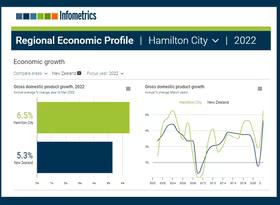The small and isolated isles
In 1914 New Zealand was the richest country in the world and in 1960 we were the third richest. We are now ranked at number 50. We have been overtaken by Greece and Slovenia and are about to be overtaken by Israel, Taiwan and Korea.
That our economic performance has been so mediocre is surprising as we have checked so many of the correct boxes to achieve growth. According to the OECD the mystery is why New Zealand is just an average performer when the country – seems so close to best practice in most of the policies that are regarded as the key drivers of growth’.
The reforms of the 1980s have created an outstanding environment in New Zealand for conducting business. We are the second best country in the world for doing business, the least corrupt country in the world, have amongst the world’s lowest tariff barriers, the seventh most flexible labour market, a relatively small public sector, and we have extremely high levels of entrepreneurship.
A recent paper in the New Zealand Economic Papers by Phillip McCann of Waikato University provides us with a compelling answer to the paradox of our strong institutional and policy environment and our relatively poor economic performance. He argues that the debate has focussed too closely on the too much/too little government intervention and not enough on our size and place in a rapidly globalising world. He claims that New Zealand being small and extremely isolated with small urban centres and a low degree of export diversity is a combination that is not conducive to growth in the modern phase of globalisation.
Professor McCann reminds us that the world has been reorganising into massive economic blocs from which New Zealand has been excluded. The creation of the European Union, North American Free Trade Agreement and integration in the South and East Asia region has led to the development of three super-regional areas of economic integration. The economic benefits of being part of these blocs have been significant and over the last two decades the world’s global output has been increasingly concentrated within them.
Growth of big cities within the super-regions has been central to their success. Industries benefit from locating together in clusters in big cities as it enables companies to more easily network, co-ordinate and exchange knowledge.
New Zealand has been excluded from the big trading blocs and we don’t have a city with sufficient size and agglomeration advantages to compete with the truly big cities in the world. All of the world’s most productive cities are at least twice the size of Auckland and most are between three and five times the size. Many head offices in Wellington have been heading to Auckland and many in Auckland have headed over to Sydney and Melbourne to benefit from agglomeration in those centres.
The idea that our small size and isolation is an important constraint on our economic performance has probably not been given the attention it deserves as we have come to think of the world as a global village. With much lower transport and telecommunication costs is it not easy to locate our business wherever we choose in the world? Professor McCann points out that this is the case for low value added activities, which have become dispersed around the world. It is relatively straightforward to send off clear instructions on how to manufacture a product to an offshore location and receive back the finished article.
But the story is very different for knowledge intensive activities that need to be the cornerstone of a high performing economy. Professor McCann argues that the cost of conducting high knowledge activities away from major markets has actually been increasing over time and, as a result, they have been concentrating in the big agglomeration cities. This is because of the increasing importance of timeliness, variety, customisation and service quality. The premium associated with face-to-face contact has increased overtime. Increasingly complex and sophisticated levels of knowledge are being generated at an ever increasing pace. The trust and confidence required to deliver this knowledge to the client therefore requires even more intense and frequent face-to-face contact.
Being located literally at the other end of the earth makes face-to-face contact with overseas customers expensive. Even efficient e-mail, phoning and video conferencing is difficult given the time differences.
That we have been excluded from the world’s big economic blocks, that knowledge intensive business has gravitated towards the big agglomeration cities, and that developing knowledge intensive businesses far from the major markets is becoming increasingly difficult have all worked against New Zealand.
Professor McCann’s arguments invoke many responses in us. That our relatively poor performance is probably not a consequence of bad policy decisions offers some relief. But it is also discomforting to be reminded that our economic geography is so stacked against us. Unlike Greece we don’t have the coat tails of a rich trading bloc to drag us up but rather a rich neighbour that attracts our capital and best talent. Having policy that is as good as elsewhere is not good enough; we have to aim at policy perfection to offset the tough set of economic cards dealt to us.
Disclaimer: This article quotes extensively from Phillip McCann’s paper titled Economic geography, globalisation and New Zealand’s productivity paradox sometimes without specific reference.




